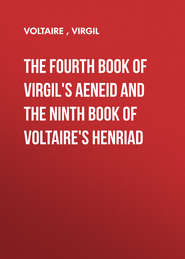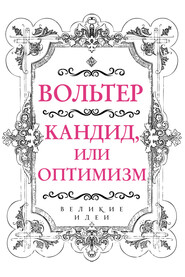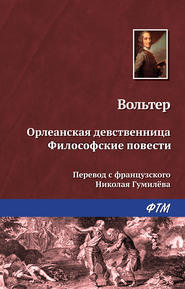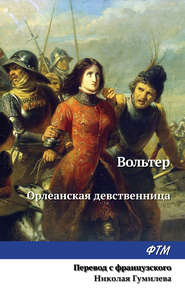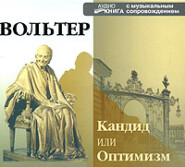По всем вопросам обращайтесь на: info@litportal.ru
(©) 2003-2024.
✖
The History of Peter the Great, Emperor of Russia
Настройки чтения
Размер шрифта
Высота строк
Поля
Alexis, by his second marriage with another of his subjects, daughter of the boyard Nariskin, had Peter and the princess Nathalia. Peter was born the 30th of May (or the 10th of June new stile), in the year 1672, and was but four years old when he lost his father. As the children of a second marriage were not much regarded in Russia, it was little expected that he would one day mount the throne.
It had ever been the character of the family of Romanow to civilize their state. It was also that of Theodore. We have already remarked, in speaking of Moscow, that this prince encouraged the inhabitants of that city to build a great number of stone houses. He likewise enlarged that capital, and made several useful regulations in the general police; but, by attempting to reform the boyards, he made them all his enemies: besides, he was not possessed of sufficient knowledge, vigour, or resolution, to venture upon making a general reformation. The war with the Turks, or rather with the Crim Tartars, in which he was constantly engaged with alternate success, would not permit a prince of his weak state of health to attempt so great a work. Theodore, like the rest of his predecessors, married one of his own subjects, a native of the frontiers of Poland; but having lost her in less than a year after their nuptials, he took for his second wife, in 1682, Martha Matweowna, daughter of the secretary Nariskin.[20 - This must certainly be a mistake of M. de Voltaire, or an error in the press; for the lady here spoken of was the daughter of Matthias Apraxim, a person on whom Theodore had lately conferred nobility.] Some months after this marriage, he was seized with the disorder which ended his days, and died without leaving any children. As the czars married without regard to birth, they might likewise (at least at that time) appoint a successor without respect to primogeniture. The dignity of consort and heir to the sovereign seemed to be entirely the reward of merit; and, in that respect, the custom of this empire was much preferable to the customs of more civilized states.
Theodore, before he expired, seeing that his brother Iwan was by his natural infirmities incapable of governing, nominated his younger brother Peter, heir to the empire of Russia. Peter, who was then only in his tenth year, had already given the most promising hopes.
If, on the one hand, the custom of raising a subject to the rank of czarina, was favourable to the females, there was another which was no less hard upon them; namely, that the daughters of the czars were very seldom married, but were most of them obliged to pass their lives in a monastery.
The princess Sophia, third daughter of czar Alexis, by his first marriage, was possessed of abilities, equally great and dangerous. Perceiving that her brother Theodore had not long to live, she did not retire to a convent; but finding herself situated between two brothers, one of whom was incapable of governing, through his natural inability; and the other, on account of his youth, she conceived the design of placing herself at the head of the empire. Hence, in the last hours of czar Theodore, she attempted to act the part that Pulcheria had formerly played with her brother, the emperor Theodosius.
CHAP. IV
JOHN AND PETER.
Horrible Sedition among the Strelitzes.[21 - Extracted wholly from the memoirs sent from Moscow and Petersburg.]
1682.
Czar Theodore's eyes were scarcely closed, when the nomination of a prince of only ten years old to the throne, the exclusion of the elder brother, and the intrigues of the princess Sophia, their sister, excited a most bloody revolt among the strelitzes. Never did the janissaries, nor the prætorian guards, exercise more horrible barbarities. The insurrection began two days after the interment of Theodore, when they all ran to arms in the Kremlin, which is the imperial palace at Moscow. There they began with accusing nine of their colonels, for keeping back part of their pay. The ministry was obliged to break the colonels, and to pay the strelitzes the money they demanded: but this did not satisfy them, they insisted upon having these nine officers delivered up to them, and condemned them, by a majority of votes, to suffer the Battogs, or Knout; the manner of which punishment is as follows: —
The delinquent is stripped naked, and laid flat on his belly, while two executioners beat him over the back with switches, or small canes, till the judge, who stands by to see the sentence put in execution, says, 'It is enough.' The colonels, after being thus treated by their men, were obliged to return them thanks, according to the custom of the eastern nations; where criminals, after undergoing their punishment, must kiss the judge's hand. Besides complying with this custom, the officers gave them a sum of money, which was something more than the custom.
While the strelitzes thus began to make themselves formidable, the princess Sophia, who secretly encouraged them, in order to lead them by degrees from crime to crime, held a meeting at her house, consisting of the princesses of the blood, the generals of the army, the boyards, the patriarch, the bishops, and even some of the principal merchants; where she represented to them, that prince John, by right of birth and merit, was entitled to the empire, the reins of which she intended to keep in her own hands. At the breaking up of the assembly, she caused a promise to be made to the strelitzes, of an augmentation of pay, besides considerable presents. Her emissaries were in particular employed to stir up the soldiery against the Nariskin family, especially the two brothers of the young dowager czarina, the mother of Peter the First. These persuaded the strelitzes, that one of the brothers, named John, had put on the imperial robes, had seated himself on the throne, and had attempted to strangle prince John; adding, moreover, that the late czar Theodore had been poisoned by a villain, named Daniel Vongad, a Dutch physician. At last Sophia put into their hands a list of forty noblemen, whom she stiled enemies to their corps, and to the state, and as such worthy of death. These proceedings exactly resembled the proscriptions of Sylla, and the Roman triumvirate, which had been revived by Christian II. in Denmark and Sweden. This may serve to shew, that such cruelties prevail in all countries in times of anarchy and confusion. The mutineers began the tragedy with throwing the two knez, or princes, Dolgorouki and Matheof, out of the palace-windows; whom the strelitzes received upon the points of their spears, then stripped them, and dragged their dead bodies into the great square; after this they rushed into the palace, where meeting with Athanasius Nariskin, a brother of the young czarina, and one of the uncles of czar Peter, they murdered him in like manner; then breaking open the door of a neighbouring church, where three of the proscribed persons had taken refuge, they drag them from the altar, strip them naked, and stab them to death with knives.
They were so blinded with their fury, that seeing a young nobleman of the family of Soltikoff, a great favourite of theirs, and who was not included in the list of the proscribed, and some of them mistaking him for John Nariskin, whom they were in search of, they murdered him upon the spot; and what plainly shews the manners of those times, after having discovered their error, they carried the body of young Soltikoff, to his father to bury it; and the wretched parent, far from daring to complain, gave them a considerable reward for bringing him the mangled body of his son. Being reproached by his wife, his daughters, and the widow of the deceased, for his weakness, 'Let us wait for an opportunity of being revenged,' said the old man. These words being overheard by some of the soldiers, they returned furiously back into the room, dragged the aged parent by the hair, and cut his throat at his own door.
Another party of the strelitzes, who were scouring the city in search of the Dutch physician, Vongad, met with his son, of whom they inquired for his father; the youth trembling, replied, he did not know where he was, upon which they immediately dispatched him. Soon after, a German physician falling in their way, 'You are a doctor,' said they, 'and if you did not poison our master, Theodore, you have poisoned others, and therefore merit death;' and thereupon killed him.
At length they found the Dutchman, of whom they were in quest, disguised in the garb of a beggar; they instantly drag him before the palace. The princesses who loved this worthy man, and placed great confidence in his skill, begged the strelitzes to spare him, assuring them that he was a very good physician, and had taken all possible care of their brother Theodore. The strelitzes made answer, that he not only deserved to die as a physician, but also as a sorcerer; and that they had found in his house, a great dried toad, and the skin of a serpent. They furthermore required to have young Nariskin delivered up to them, whom they had searched for in vain for two days: alleging, that he was certainly in the palace, and that they would set fire to it, unless he was put into their hands. The sister of John Nariskin, and the other princesses, terrified by their menaces, went to acquaint their unhappy brother in the place of his concealment, with what had passed; upon which the patriarch heard his confession, administers the viaticum, and extreme unction to him, and then, taking an image of the blessed Virgin, which was said to perform miracles, he leads the young man forth by the hand, and presents him to the strelitzes, shewing them, at the same time, the image of the Virgin. The princesses, who in tears surrounded Nariskin, falling upon their knees before the soldiers, besought them, in the name of the blessed Virgin, to spare their relation's life; but the inhuman wretches tore him from their arms, and dragged him to the foot of the stairs, together with the physician Vongad, where they held a kind of tribunal among themselves, and condemned them both to be put to the torture. One of the soldiers, who could write, drew up a form of accusation, and sentenced the two unfortunate princes to be cut in pieces; a punishment inflicted in China and Tartary on parricides, and called the punishment of ten thousand slices. After having thus used Nariskin and Vongad, they exposed their heads, feet, and hands, on the iron points of a balustrade.
While this party of the strelitzes were thus glutting their fury in the sight of the princesses, the rest massacred every one who was obnoxious to them, or suspected by the princess Sophia.
This horrid tragedy concluded with proclaiming the two princes, John and Peter, in June, 1682, joint sovereigns, and associating their sister Sophia with them, in the quality of co-regent; who then publicly approved of all their outrages, gave them rewards, confiscated the estates of the proscribed, and bestowed them upon their murderers. She even permitted them to erect a monument, with the names of the persons they had murdered, as being traitors to their country: and to crown all, she published letters-patent, thanking them for their zeal and fidelity.
CHAP. V
Administration of the princess Sophia. Extraordinary quarrel about religion. A conspiracy.
Such were the steps by which the princess Sophia did in effect ascend the throne of Russia, though without being declared czarina; and such the examples that Peter the First had before his eyes. Sophia enjoyed all the honours of a sovereign; her bust was on the public coin; she signed all dispatches, held the first place in council, and enjoyed a power without control. She was possessed of a great share of understanding, and some wit; made verses in the Russian language, and both spoke and wrote extremely well. These talents were set off by the addition of an agreeable person, and sullied only by her ambition.
She procured a wife for her brother John, in the manner already described in several examples. A young lady named Soltikoff, of the family with the nobleman of that name who had been assassinated by the seditious strelitzes, was sent for from the heart of Siberia, where her father commanded a fortress, to be presented to czar John at Moscow. Her beauty triumphed over all the intrigues of her rivals, and John was married to her in 1684. At every marriage of a czar we seem to read the history of Ahasuerus, or that of Theodosius the Younger.
In the midst of the rejoicings on account of this marriage, the strelitzes raised a new insurrection, and (who would believe it?) on account of religion! of a particular tenet! Had they been mere soldiers, they would never have become controvertists, but they were also citizens of Moscow. Whosoever has, or assumes a right of speaking in an authoritative manner to the populace, may found a sect. This has been seen in all ages, and all parts of the world, especially since the passion of dogmatizing has become the instrument of ambition, and the terror of weak minds.
Russia had experienced some previous disturbances on occasion of a dispute, whether the sign of the cross was to be made with three fingers, or with two! One Abakum, who was also a priest, had set up some new tenets at Moscow, in regard to the Holy Spirit; which according to the Scriptures, enlightened all the faithful; as likewise with respect to the equality of the primitive Christians, and these words of Christ: – 'There shall be amongst you neither first nor last.' Several citizens and many of the strelitzes, embraced the opinions of Abakum. One Raspop[22 - Here M. de Voltaire seems to have greatly mistaken the sense of this word. Raspop not being a proper name, in which sense he takes it, but signifies a degraded priest.] was the chief of this party, which became considerable. The sectaries, at length, entered (July 16, 1682, new stile) the cathedral, where the patriarch and his clergy were officiating; drove them out of the church with stones, and seated themselves very devoutly in their places, to receive the Holy Spirit. They called the patriarch the 'ravenous wolf in the sheepfold;' a title which all sects have liberally bestowed on each other. The princess Sophia, and the two czars, were immediately made acquainted with these disturbances: and the other strelitzes, who were staunch to the good old cause, were given to understand, that the czars and the church were in danger. Upon this the strelitzes and burghers of the patriarchal party attacked the Abakumists: but a stop was put to the carnage, by publishing a convocation of a council, which was immediately assembled in a hall of the palace. This took up very little time, for they obliged every priest they met to attend. The patriarch, and a bishop, disputed against Raspop; but at the second syllogism, they began to throw stones at one another. The council ended with ordering Raspop, and some of his faithful disciples to have their heads struck off; and the sentence was executed by the sole order of the three sovereigns, Sophia, John, and Peter.
During these troubles, there was a knez, named Chowanskoi, who having been instrumental in raising the princess Sophia to the dignity she then held, wanted, as a reward for his services, to have a share in the administration.
It may be supposed, that he found Sophia not so grateful as he could wish; upon which he espoused the cause of religion, and the persecuted Raspopians, and stirred up a party among the strelitzes and the people, in defence of God's name.
This conspiracy proved a more serious affair than the enthusiastic riot of Raspop. An ambitious hypocrite always carries things farther than a simple fanatic. Chowanskoi aimed at no less than the imperial dignity; and to rid himself of all cause of fear, he resolved to murder the two czars, Sophia, the other princesses, and every one who was attached to the imperial family. The czars and the princesses were obliged to retire to the monastery of the Holy Trinity, within twelve leagues of Petersburg.[23 - We suppose the author means Moscow.] This was, at the same time, a convent, a palace, and a fortress, like Mount Cassino,[24 - Or Cossano, a small town and abbey in the Milanese. On the Adda, near this place, an obstinate battle was fought between the Germans and French, in 1705, when prince Eugene defeated the duke of Vendome.] Corhy,[25 - A town and abbey on the borders of Westphalia, in Germany; the abbot of which is a sovereign prince, and has a seat in the imperial diet.] Fulda,[26 - Or Fuld, a town and abbey of Hesse, in Germany; situate on a river of the same name. It is governed by an abbot, who is a prince of the empire.] Kempten,[27 - An imperial city of Suabia, in Germany, situate on the Ifar.] and several others belonging to the Latin church. This monastery of the Trinity belongs to the monks of St. Basil. It is surrounded by deep ditches, and ramparts of brick, on which is planted a numerous artillery. The monks are possessed of all the country round for four leagues. The imperial family were in full safety there, but more on account of the strength, than the sanctity of the place. Here Sophia treated with the rebel knez; and having decoyed him half way, caused his head to be struck off, together with those of one of his sons, and thirty-seven strelitzes who accompanied him.
1682.
The body of strelitzes upon this news, fly to arms, and march to attack the convent of Trinity, threatening to destroy every thing that came in their way. The imperial family stood upon their defence; the boyards arm their vassals, all the gentlemen flocked in, and a bloody civil war seemed on the point of beginning. The patriarch somewhat pacified the strelitzes, who began to be intimidated with the number of troops that were marching towards them on all sides: in short, their fury was changed into fear, and their fear into the most abject submission; a change common to the multitude. Three thousand seven hundred of this corps, followed by their wives and children, with ropes tied about their necks, went in procession to the convent of the Trinity, which three days before they had threatened to burn to the ground. In this condition, these unhappy wretches present themselves before the gate of the convent, two by two, one carrying a block and another an axe; and prostrating themselves on the ground, waited for their sentence. They were pardoned upon their submission, and returned back to Moscow, blessing their sovereigns; and still disposed, though unknown to themselves, to commit the same crime upon the very first opportunity.
These commotions being subsided, the state resumed an exterior of tranquillity; but Sophia still remained possessed of the chief authority, leaving John to his incapacity, and keeping Peter in the subjection of a ward. In order to strengthen her power, she shared it with Prince Basil Galitzin, whom she created generalissimo, minister of state, and lord keeper. Galitzin was in every respect superior to any person in that distracted court: he was polite, magnificent, full of great designs, more learned than any of his countrymen, as having received a much better education, and was even master of the Latin tongue, which was, at that time, almost entirely unknown in Russia. He was of an active and indefatigable spirit, had a genius superior to the times he lived in, and capable, had he had leisure and power, as he had inclination, to have changed the face of things in Russia. This is the eulogium given of him by La Neuville, at that time the Polish envoy in Russia; and the encomiums of foreigners are seldom to be suspected.
This minister bridled the insolence of the strelitzes, by distributing the most mutinous of that body among the several regiments in the Ukraine, in Casan, and Siberia. It was under his administration that the Poles, long the rivals of Russia, gave up, in 1686, all pretensions to the large provinces of Smolensko and the Ukraine. He was the first who sent an embassy to France, in 1687; a country which had, for upwards of twenty years, been in the zenith of its glory, by the conquests, new establishments, and the magnificence of Lewis XIV. and especially by the improvement of the arts, there can be not only external grandeur, but solid glory. France had not then entered into any correspondence with Russia, or rather was unacquainted with that empire; and the academy of inscriptions ordered a medal to be struck to commemorate this embassy, as if it had come from the most distant part of the Indies; but notwithstanding all this, the ambassador Dolgorouski miscarried in his negotiation, and even suffered some gross affronts on account of the behaviour of his domestics, whose mistakes it would have been better to have overlooked; but the court of Lewis XIV. could not then foresee, that France and Russia would one day reckon among the number of their advantages, that of being cemented by the closest union.
Russia was now quiet at home, but she was still pent up on the side of Sweden, though enlarged towards Poland, her new ally, in continual alarms on the side of Crim Tartary, and at variance with China in regard to the frontiers.
The most intolerable circumstance for their empire, and which plainly shewed, that it had not yet attained to a vigorous and regular administration, was, that the khan of the Crim Tartars exacted an annual tribute of 6000 rubles, in the nature of that which the Turk had imposed on the Poles.
Crim Tartary is the ancient Taurica Chersonesus, formerly so famous by the commerce of the Greeks, and still more by their fables, a fruitful but barbarous country. It took its name of Crimea, or Crim, from the title of its first khans, who took this name before the conquests of the sons of Gengis Khan. To free his country from this yoke, and wipe off the disgrace of such tribute, the prime minister, Galitzin, marched in person (1687, 1688,) into Crim Tartary, at the head of a numerous army. These armies were not to be compared to the present troops; they had no discipline; there was hardly one regiment completely armed; they had no uniform clothing, no regularity: their men indeed were inured to hard labour and a scarcity of provisions, but then they carried with them such a prodigious quantity of baggage, as far exceeded any thing of the kind in our camps, where the greatest luxury prevails. Their vast numbers of waggons for carrying ammunition and provisions, in an uninhabitable and desert country, greatly retarded the expedition against Crim Tartary. The army found itself in the midst of the vast deserts, on the river Samara, unprovided with magazines. Here Galitzin did what in my opinion, was never done any where else: he employed thirty thousand men in building a town on the banks of the Samara, to serve as a place for magazines in the ensuing campaign: it was begun in one year, and finished in the third month of the following; the houses indeed were all wood except two, which were brick; the ramparts were of turf, but well lined with artillery; and the whole place was in a tolerable state of defence.
This was all that was done of any consequence in this ruinous expedition. In the mean while Sophia continued to govern in Moscow, while John had only the name of czar; and Peter, now at the age of seventeen, had already the courage to aim at real sovereignty. La Neuville, the Polish envoy, then resident at Moscow, and who was eye-witness to all that passed, pretends that Sophia and Galitzin had engaged the new chief of the strelitzes, to sacrifice to them their young czar: it appears, at least, that six hundred of these strelitzes were to have made themselves masters of his person. The private memoirs which have been entrusted to my perusal by the court of Russia, affirm, that a scheme had actually been laid to murder Peter the First: the blow was on the point of being struck, and Russia for ever deprived of the new existence she has since received. The czar was once more obliged to take refuge in the convent of the Trinity, the usual asylum of the court when threatened by the soldiers. There he assembled the boyards of his party, raised a body of forces, treats with the captains of the strelitzes, and called in the assistance of certain Germans, who had been long settled in Moscow, and were all attached to his person from his having already shewn himself the encourager of strangers. Sophia and John, who continued at Moscow, used every means to engage the strelitzes to remain firm to their interests; but the cause of young Peter, who loudly complained of an attempt meditated against himself and his mother, prevailed over that of the princess, and of a czar, whose very aspect alienated all hearts. All the acomplices were punished with a severity to which that country was as much accustomed as to the crimes which occasioned it. Some were beheaded after undergoing the punishment of the knout or battocks. The chief of the strelitzes was put to death in the same manner, and several other suspected persons had their tongues cut out. Prince Galitzin escaped with his life, through the intercession of one of his relations, who was a favourite of czar Peter; but he was stripped of all his riches, which were immense, and banished to a place in the neighbourhood of Archangel. La Neuville, who was present at the whole of this catastrophe, relates, that the sentence pronounced upon Galitzin was in these terms: 'Thou art commanded, by the most clement czar, to repair to Karga, a town under the pole, and there to continue the remainder of thy days. His majesty, out of his extreme goodness, allows thee three pence per day for thy subsistence.'
There is no town under the pole. Karga is in the 62nd degree of latitude, and only six degrees and a half further north than Moscow. Whoever pronounced this sentence must have been a very bad geographer. La Neuville was probably imposed upon by a false account.
1689.] At length the princess Sophia was once more sent back to her monastery at Moscow,[28 - How are we to reconcile this with what the author tells us in the latter part of the third chapter, where he says, that this princess, perceiving that her brother Theodore was near his end, declined retiring to a convent, as was the usual custom of the princesses of the imperial family.] after having so long held the reins of government; and this revolution proved, to a woman of her disposition, a sufficient punishment.
From this instant Peter began to reign in reality; his brother John having no other share in the government, but that of seeing his name to all public acts. He led a retired life, and died in 1696.
CHAP. VI
The reign of Peter the First. – Beginning of the grand reformation.
Peter the Great was tall, genteel, well made, with a noble aspect, piercing eyes and a robust constitution, fitted for all kinds of hardship and bodily exercise. He had a sound understanding, which is the basis of all real abilities; and to this was joined an active disposition, which prompted him to undertake and execute the greatest things. His education was far from being worthy of his genius. The princess Sophia was, in a peculiar manner, interested to let him remain in ignorance, and to indulge himself in those excesses which youth, idleness, custom, and the high rank he held, made but too allowable. Nevertheless, he had been lately married, (June 1689) like others of his predecessors, to one of his own subjects, the daughter of colonel Lapuchin; but, as he was young, and for some time enjoyed none of the prerogatives of the crown, but that of indulging his pleasures without restraint, the ties of wedlock were not always sufficient to keep him within just bounds. The pleasures of the table, in which he indulged himself rather too freely, with foreigners, who had been invited to Moscow by prince Galitzin, seemed not to presage that he would one day become the reformer of his country; however, in spite of bad examples, and even the allurements of pleasure, he applied himself to the arts of war and government, and which, even then, shewed that he had the seeds of greatness in him.
It was still less expected, that a prince, who was subject to such a constitutional dread of water, as to subject him to cold sweats, and even convulsions, when he was obliged to cross a small river or brook, should become one of the best seamen in all the north. In order to get the better of nature, he began by jumping into the water, notwithstanding the horror he felt at it, till at length this aversion was changed into a fondness for that element.[29 - We find, in the memoirs of count Strahlemberg, a Swedish officer, who was taken prisoner at the battle of Pultowa, and continued many years at the court of czar Peter, the following account of the true cause of this extraordinary kind of hydrophobia. When Peter was about five years of age, his mother took him with her in a coach for an airing, and having to pass a dam, where there was a great fall of water the child, who was then sleeping in his nurse's lap, was so terrified by the rushing of the water (the noise of which waked him suddenly out of his sleep), that he was seized with a violent fever, and, after his recovery, he retained such a dread of that element, that he could not bear the sight even of any standing water, much less to hear a running stream.]
He often blushed at the ignorance in which he had been brought up. He learned, almost of himself, without the help of a master, enough of German and high Dutch, to be able to write and explain himself tolerably well in both those languages. The Germans and Dutch appeared to him as the most civilized nations, because the former had already erected, in Moscow, some of those arts and manufactures which he was desirous of seeing established in his empire, and the latter excelled in the art of navigation, which he already began to look upon as the most necessary of all others.
Such were the dispositions which Peter cherished, notwithstanding the follies of his youth. At the same time, he found himself disturbed by factions at home, had the turbulent spirit of the strelitzes to keep under, and an almost uninterrupted war to manage against the Crim Tartars. For though hostilities had been suspended in 1689, by a truce, it had no long continuance.
During this interval, Peter became confirmed in his design of introducing the arts into his country.
His father Alexis had, in his lifetime, entertained the same views, but he wanted leisure, and a favourable opportunity to carry them into execution; he transmitted his genius to his son, who was more clear-sighted, more vigorous, and more unshaken by difficulties and obstacles.
Alexis had been at a great expense in sending for Bothler,[30 - Memoirs of Petersburg and Moscow.] a ship builder and sea captain, from Holland, together with a number of shipwrights and sailors. These built a large frigate and a yacht upon the Wolga, which they navigated down that river to Astracan, where they were to be employed in building more vessels, for carrying on an advantageous trade with Persia, by the Caspian Sea. Just at this time the revolt of Stenko-Rasin broke out, and this rebel destroyed these two vessels, which he ought to have preserved for his own sake, and murdered the captain; the rest of the crew fled into Persia, from whence they got to some settlements belonging to the Dutch East India company. A master-builder, who was a good shipwright, staid behind in Russia, where he lived a long time in obscurity.
One day, Peter taking a walk at Ishmaelof, a summer-palace built by his grandfather, he perceived, among several other rarities, an old English shallop, which had lain entirely neglected: upon which he asked Timmerman, a German, and his mathematical teacher, how came that little boat to be of so different a construction from any he had seen on the Moska? Timmerman replied, that it was made to go with sails and oars. The young prince wanted instantly to make a trial of it; but it was first to be repaired and rigged. Brant, the ship-builder abovementioned, was by accident found out at Moscow, where he lived retired; he soon put the boat in order, and worked her upon the river Yauza, which washes the suburbs of the town.
Peter caused his boat to be removed to a great lake, in the neighbourhood of the convent of the Trinity; he likewise made Brant build two more frigates, and three yachts, and piloted them himself. A considerable time afterwards, viz. in 1694, he made a journey to Archangel, and having ordered a small vessel to be built in that port, by the same Brant, he embarked therein on the Frozen Sea, which no sovereign beside himself had ever beheld. On this occasion, he was escorted by a Dutch man of war, under the command of captain Jolson, and attended by all the merchant-vessels then in the port of Archangel. He had already learned the manner of working a ship; and, notwithstanding the pains his courtiers took to imitate their master, he was the only one who made a proficiency in it.
He found it no less difficult to raise a well disciplined body of land forces, on whom he could depend, than to establish a navy. His first essay in navigation, on a lake, previous to his journey to Archangel, was looked upon only as the amusements of a young prince of genius; and his first attempt to form a body of disciplined troops, likewise appeared as nothing more than that of diversion. This happened during the regency of the princess Sophia; and, had he been suspected of meaning any thing serious by this amusement, it might have been attended with fatal consequences to him.
He placed his confidence in a foreigner, the celebrated Le Fort, of a noble and ancient family in Piedmont, transplanted near two centuries ago to Geneva, where they have filled the most considerable posts in the state. He was intended to have been brought up to the trade, to which the town is indebted for the figure it now makes; having formerly been known only as the seat of religious controversies.







